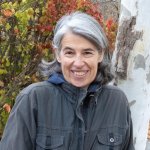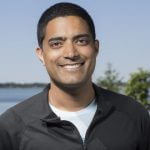Tillie Walton
Aspen, Colorado
Tillie Walton is a river conservationist, strategic environmental consultant, philanthropist, and hydrologist who has been instrumental in creating and implementing large river restoration projects and environmental conservation efforts, including the Yuma East Wetlands. She has co-authored scientific publications on river dynamics and using restoration waste as biofuel. Her love of rivers was inspired by over 20 years of guiding whitewater expeditions through the Grand Canyon and on other rivers across the planet. Tillie served on the board of the Walton Family Foundation for ten years and was instrumental in developing their Environment Program which works towards healthy rivers and oceans. She has served on various boards and advisory boards including the World Wildlife Fund (WWF), Aspen Center for Environmental Studies, Aspen Institute’s Vanguard Chapter, and Grand Canyon Youth. She currently serves on the advisory board at the Chopra Foundation and Mehta Labs. Tillie is also passionate about free-flowing rivers, environmental education, and meditation and has worked on numerous programs in these areas. Tillie holds a B.S. in Environmental Science and Hydrology and an M.A. in Environmental Management and Planning focused on Riparian Restoration.
This interview was conducted by Carly Schmidt on August 24, 2018.
Did you grow up around water? What are your fondest early memories of rivers, lakes or streams?
I grew up mostly land-locked in Denver, Colorado. My first memory of a river was when I was five. My family and I were in Yellowstone and my mom took us on a sunrise float. We woke up at 4 a.m. and I remember getting into the raft and the feeling of the water underneath the boat. This was my first introduction to water, aside from camping.
When I was in high school, I took a 3-day canoe trip in Big Bend, Texas as part of an experiential program. I remember the exact moment when my guide told me to lean back and watch the canyon walls go by. I had been reading Ed Abby’s Desert Solitare, and leaning back in that canoe and experiencing what I had read about, was the moment my love for water was sealed.
When did you realize that you wanted to stand up for healthy rivers?
When I was 19, I was a river guide during the Two Forks dam fight. As people got involved in the issue, I began to understand how rivers are threatened in the West. By watching the people around me become so passionate about protecting the river and then going on my first Grand Canyon river trip and learning how David Brower helped stop dams from being built in the Grand Canyon, I realized how important rivers are – and from there- I was hooked. I have been fascinated by water ever since.
How have you worked with River Network in the past, and what have you taken from your involvement with River Network?
First and foremost, River Network creates a connected community of people working on water issues, which is so valuable. Through that, I’ve met so many advocates doing amazing projects. It is such a great learning platform as well. For example, at River Rally, I had no idea that over 1 million people in California lack access to clean drinking water. It is such a powerful platform for the river community to connect and learn from each other.
Why is protecting rivers and water important to you now?
For so many reasons. First of all, rivers are the lifeblood and arteries of our planet. Without healthy streams and rivers, we would not function. As the River Network audience knows, freshwater makes up less that 3%,of all water and of that, less than 1% is in rivers and lakes. Water is really the resource that all life depends upon. And second, water connects people to something deeper in themselves. There is something about being on a river or being around water that encourages people to open up in ways that they wouldn’t otherwise.
What water-related accomplishment are you most proud of?
Our local streams in Aspen, Colorado were threatened by hydroelectric projects, de-watering, and potential dams. After many years, American Rivers and local environmental groups were able to work with the city, to get protection measures in place to protect Castle Creek in perpetuity. The same protections are almost secured for Maroon Creek as well.
In addition, I feel fortunate to have been able to help set up the Environment Program at the Walton Family Foundation. That effort has helped catalyze other funding and brought more attention to water and rivers, so I feel lucky to have worked on that.
What changes would you like to see for water in your community over the last 10 years?
I would love to see us value water for its unique ability to give life and the precious nature of it. I would love to see policy changes that help us recognize and appreciate the value of water, not only ecologically, but also in terms of economics and prioritizing water conservation instead of water waste. We’re currently working on a blockchain platform that organizes water rights to create more transparency and enable better water management. I’d love to see people become more aware of how precious water is and ensure clean rivers and streams for future generations.







